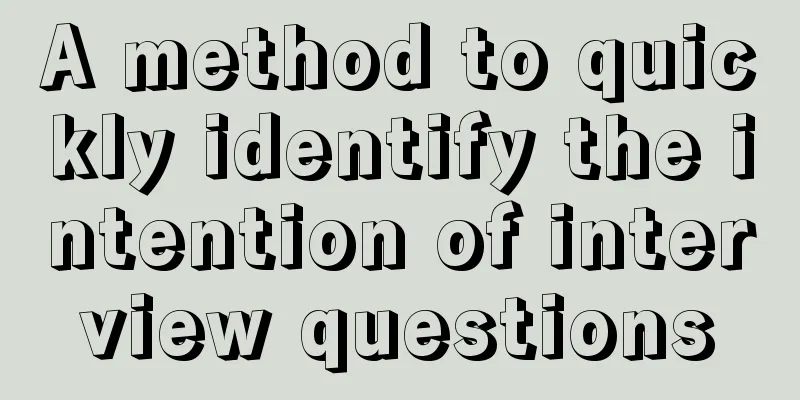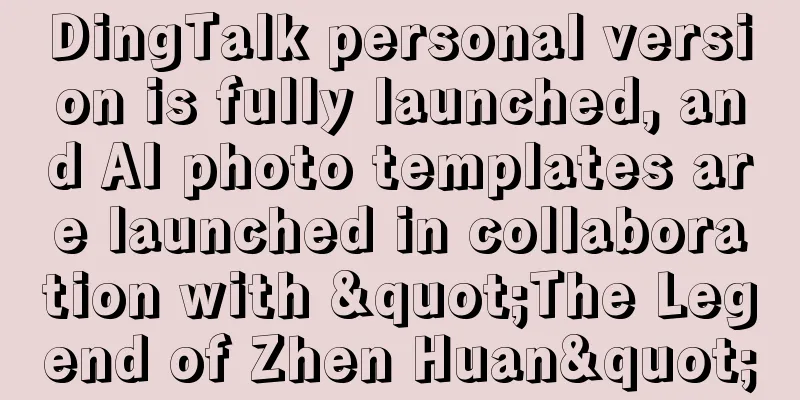To keep workers from breaking down, they must rely on the emotional value of ChatGPT

ChatGPT can create profits for the boss, but will he share them with you? If not, don’t just focus on his improvement in work efficiency. We workers are not machines, we have other needs. 1. Sense of accomplishment: completing small goals + realizing big plansThe workplace experience post of Jimei on Xiaohongshu tells you that you should divide the tasks clearly and reasonably, and then complete them step by step. Laozi's Tao Te Ching also believes this, and summarizes it as "all great things in the world must be done in detail." On the one hand, the process of dividing tasks is to sort out ideas and inspire inspiration; on the other hand, it can dispel anxiety, avoid the "difficulties are too big, so I have to give up" mentality, reduce the psychological construction required for "facing difficulties head-on", and let you focus on conquering the current link. In other words, when you write prompts for ChatGPT, you are also prompting yourself. This process guides you to disassemble and sort out large and complex work projects, and then express them clearly. And every time you see the reply refreshed by ChatGPT word by word, accurately responding to the input question, you can feel a strong sense of satisfaction. This feeling is somewhat similar to the "dopamine reward" our ancestors received every time they picked a fruit or captured a prey. Moreover, with ChatGPT as a co-pilot, we can try some big plans that we didn’t dare to think of in the past. Everyone has had some grand ideas, which may be great ideas, but they have to be put aside due to time, energy or a specific ability reserve. However, ChatGPT's knowledge reserve, logical ability and associative ability are far stronger than expected, and it even has a certain ability to learn new skills. This makes many "big plans" no longer just fantasies. It allows us to achieve achievements that were previously difficult to achieve without external resources. 2. Sense of companionship: understandable, clear, and bearableChatGPT can really understand me, much better than many of my human colleagues. No matter what questions I ask him or how I express myself, he can always understand me more accurately and give me a reasonable reply, at least not "Not even wrong". This has greatly reduced my frustration at work and reduced a lot of internal friction. It makes people feel that there is really a guy fighting with you instead of holding you back.
In fact, the best part of communicating with ChatGPT is his patience and the sense of relaxation you get after knowing that he is "patient". He never gets annoyed by questions, no matter how often I ask, how trivial the questions are, or whether they are beyond his "job scope", he always responds to me with great patience and a positive attitude. Moreover, because I know this, I don't feel any psychological burden when asking questions, I don't have to choose my words carefully, and I don't have to worry about correcting or refuting him and hurting his fragile heart. 3. Sense of Growth: Tell me the answer and guide my thinkingChatGPT's knowledge reserve is so rich that it is amazing, reminiscent of the "encyclopedia" talents of the classical era. Working with him often makes you feel that you have "learned something". He can do Python code or Excel formulas for you directly; he can at least build a cognitive framework for economic principles and physics formulas. Moreover, compared with the previous practice of entering keywords in search engines to search, the efficiency is greatly improved by directly asking ChatGPT in natural language. This efficient way of obtaining information not only saves time, but also reduces the number of times I have a mental breakdown - racking my brains to arrange keywords, but finding nothing after flipping through the first ten pages of search results really makes me want to pour milk tea directly onto the screen. ChatGPT often plays the role of a personal mentor, teaching you real things step by step. When I am confused about my work ideas, I can explain my current ideas and steps in detail to ChatGPT, and he will give constructive guidance step by step based on the information I provide. It's like having a thinking tool that can provide guidance throughout the process. In addition, when I encounter difficulties or make mistakes at work, ChatGPT can patiently help me analyze and point out the problem in the entire logical chain. This is much better than the "Five Years of College Entrance Examination and Three Years of Simulation" which only gives a "reference answer" most of the time, but does not explain the "solution ideas" in detail. It can also provide targeted supplementary explanations based on my actual problems. 4. Redefine “Intelligence”In the history of the development of management science, the leap from "scientific management theory" to "interpersonal relationship theory" is a subversive breakthrough. Scientific management theory, which originated from Taylorism in the early 20th century, is an important milestone in management science. This theory regards people as a link in production, focuses on the subdivision of tasks, and uses scientific methods to find the most optimized production model and working method to achieve maximum efficiency. If this idea is promoted, it will be like the scene in Chaplin's film "Modern Times", where people are managed as machines, and only pay attention to whether the actions are up to standard and fast, which eventually drives people to numbness and madness. Scientific management theory overemphasizes production efficiency and ignores people's subjective initiative and emotional factors, which greatly limits the breadth and depth of its application. Subsequently, the Hawthorne experiment in the 1930s opened up the study of interpersonal relationship theory. This theory clarifies the importance of human emotional factors and social relationships in work, and believes that employee satisfaction, emotional investment and social interaction have an important impact on production efficiency. The introduction of this theory means that management science has begun to pay attention to "people" rather than simply "work" or "tasks." This historical change and theoretical development have a significant impact on our understanding and use of artificial intelligence, especially intelligent models such as ChatGPT. We cannot simply view artificial intelligence as a tool to improve production efficiency, but should also explore its potential in meeting people's emotional needs and improving the overall work experience. In other words, the development of artificial intelligence should pay more attention to the experience and emotional state of "people" (users), which is not only to improve work efficiency and creativity, but also to directly alleviate people's pain and increase their well-being. When we look at artificial intelligence from this perspective, we will find that: "Intelligence" represents not only "precision" and "efficiency", but also a humanized experience. Only such artificial intelligence can truly become a comprehensive boost to the development of human society, rather than just another "production machine." Author: Fan Erkun Source: WeChat public account "Dongdong Notes (ID: dongdong_note)" |
<<: How long will it take to get your money back if you spend 400 yuan on cigarette box recycling?
Recommend
McDonald’s is entering the skit industry. Do restaurant brands need to follow suit?
McDonald's launched the brand's first self...
JD.com finally has a top seller
Liu Qiangdong's digital avatar live broadcast ...
WeChat's "Shake" app is offline: Zhang Xiaolong's masterpiece disappears without a trace
WeChat first added the "Shake" function ...
Service Account Folding: It has to change, but it’s a dead end!
Among the types of public accounts, service accoun...
How do Lazada buyers apply for returns? How to deal with malicious returns?
Nowadays, cross-border e-commerce is a business pa...
How to cultivate the data thinking favored by big companies
Data thinking is not simply a data analysis skill,...
Are the private board meetings all over the streets a way of cutting leeks?
The importance of circles to career development is...
How to evaluate the effect of Xiaohongshu after publishing
How does Xiaohongshu evaluate the results of its a...
Taobao is becoming more and more like Pinduoduo|618 Observation
More and more people are finding that Taobao and P...
The article I wrote yesterday actually entered the traffic pool, and I discovered the secret...
The traffic pool of public accounts has always bee...
Why are Amazon orders always cancelled? How to increase order volume?
As Internet shopping becomes more and more popular...
Douyin sells fresh food, relying on Pinduoduo to cross the river
After bidding farewell to the absolute low-price s...
With over 100 million views, internet celebrity "Gazhu Girl" is the new top streamer on Tik Tok!
Compared with the beautiful and exquisite beauties...
Why is my eBay account frozen? What should I do if my eBay account is abnormal?
Having your eBay account frozen is very difficult ...
Has TikTok become the “public enemy of giants”?
This article starts with the three battles that Do...









